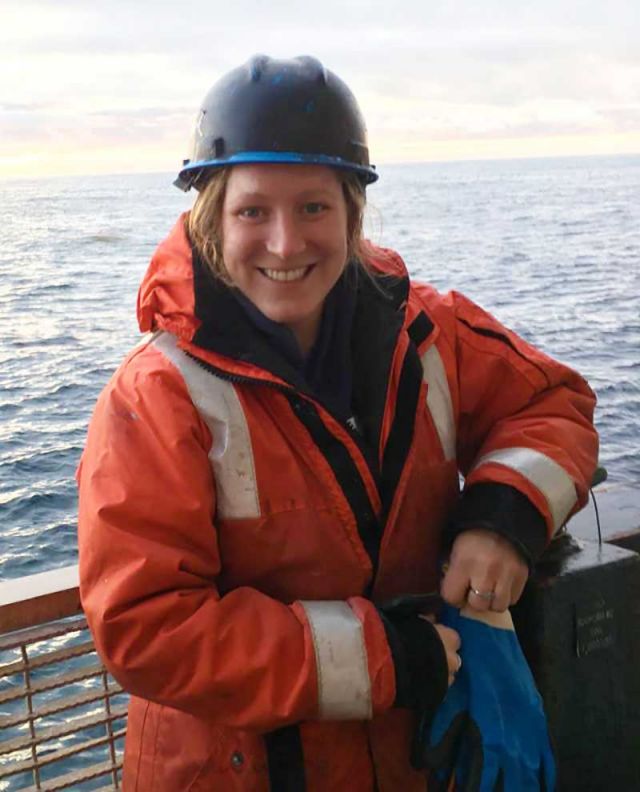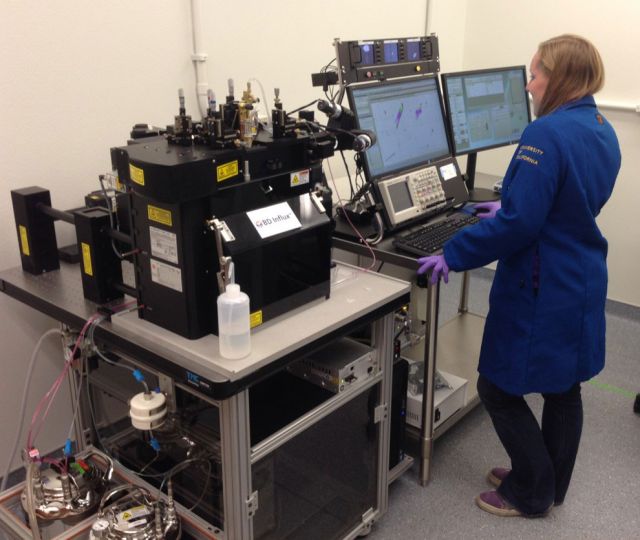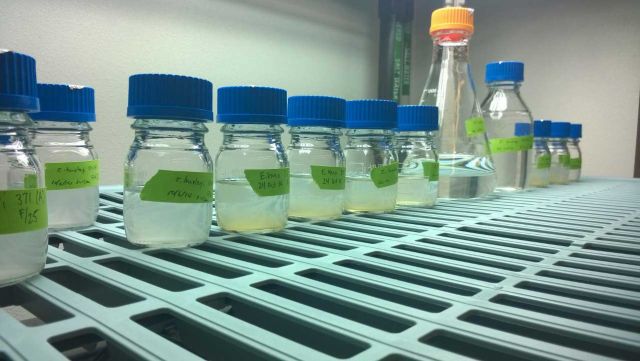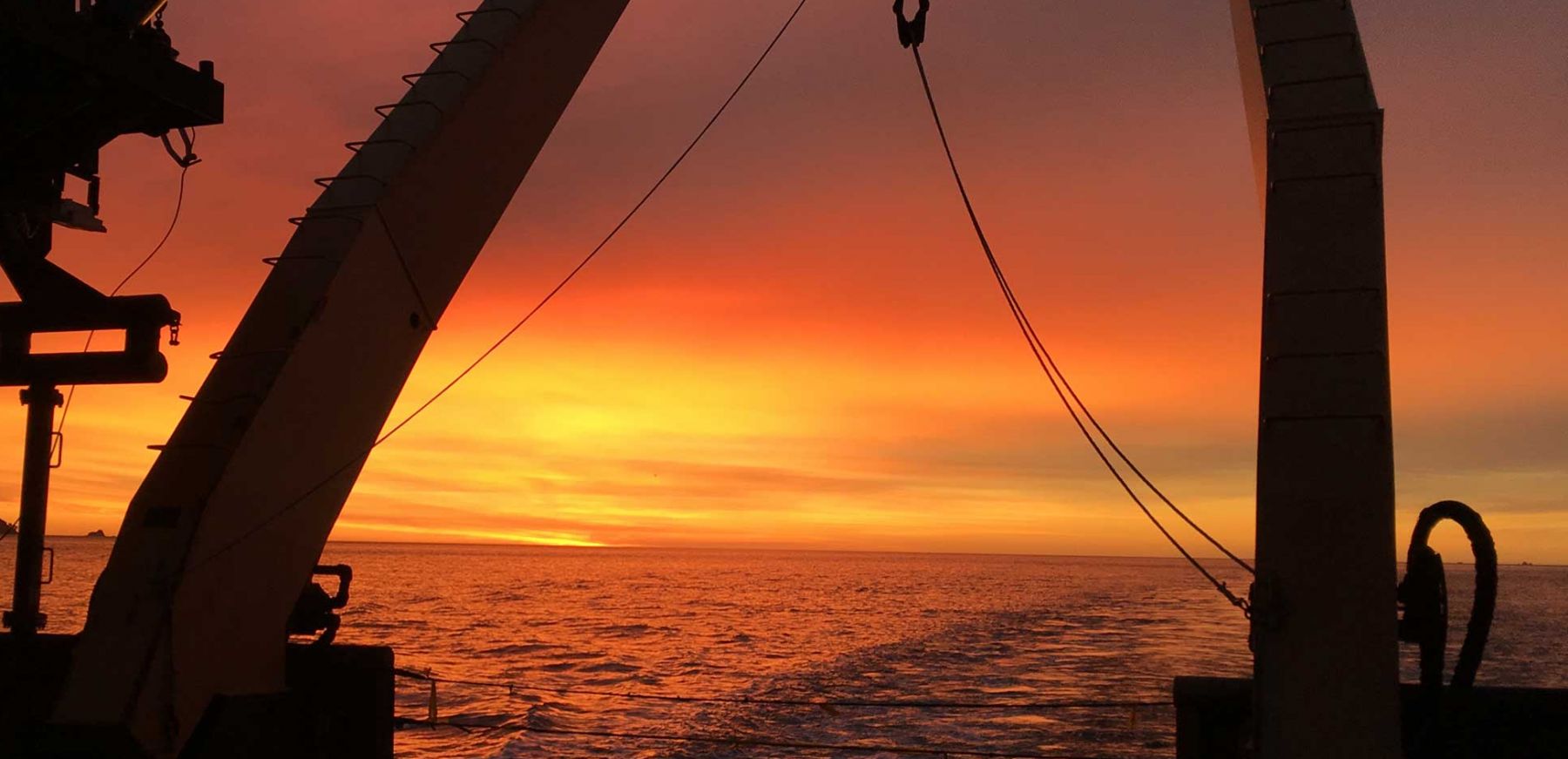
About Tanika
Tanika is a UCSB Ph.D. candidate within the Interdepartmental Graduate Program in Marine Science. She originally received her B.S. in Mathematics from Western Washington University, and is currently being advised by Debora Iglesias-Rodriguez.
Why the IGPMS?
IGPMS is exactly what I was looking for in a graduate program. It is a relatively small program that fosters a strong community. I have learned so much new information, gained new skills, and grown as a scientist and a human while participating in many experiences that I didn’t expect when I started graduate school. I feel that with my degree in Marine Science from IGPMS, I will be able to pursue a variety of careers and be very successful in whatever comes next.
I can’t imagine a better place to study the ocean than right next to the ocean… well maybe besides being in and on the ocean, which UCSB makes very possible. Being in Santa Barbara is a constant reminder that not only does this colossal, fascinating, and vital body of water connect us to people around the world, but it is a different and wondrous system of life and natural beauty that is essential for human livelihood and well-being.
Graduate school is difficult and demanding but here we can always see what we are working for- the ocean. Especially when we are limiting our travel, indoor experiences, and crowded public spaces, I can still walk to the beach and drive into the hills. I feel incredibly fortunate that I still have access to the outdoors outside of my remote work schedule to support my mental and physical health.

Research
Humans have a dramatic impact on the Earth. Although the oceans were once thought to be relatively unalterable, we know that the oceans are also changing due to manmade pressures such as climate change, resource extraction, and pollution. Without a better understanding of how the oceans have and will continue to change, we will not be able to rely on the many services the ocean provides and sustainably coexist.
My research at UCSB has focused on gaining a better understanding of some ways in which human disturbances can impact important oceanic primary producers. Phytoplankton form the base of the marine food web, supply the Earth with ample amounts of oxygen and are key players in global carbon and nutrient cycling. Changes to these microscopic organisms can have a large impact on overall ecosystems, global climate, and the humans that rely on the ocean. My dissertation focuses on three case studies; (1) exploring how a coastal oil spill impacted the physiology of important phytoplankton species, (2) the effects of wildfire ash deposition on coastal phytoplankton communities, and (3) understanding phytoplankton communities and coccolithophore bloom dynamics in the eastern Bering Sea, a rapidly changing and economically important coastal ecosystem. To do this work, I spend time at sea, in the lab, and processing samples and data on instruments and at my computer.

How and Why Did You Get Into Your Area of Research?
Growing up near Seattle, WA, I have always been surrounded by water and mesmerized by the strength and beauty of it, but it wasn’t until college that I realized I could make a career of exploring, asking questions, and playing in the water. During a study abroad trip to Costa Rica in the summer of my sophomore year, I was exposed to possible careers in environmental science and I was fascinated by the research, conservation, and eco-tourism occurring in this beautiful country. An internship the following summer with the National Oceanic and Atmospheric Administration (NOAA) gave me my first taste of marine science research. I was able to use my mathematical skills to learn and contribute to modeling ocean chemistry and biology and I became passionate about the issues of ocean acidification and climate change. From there it was an easy step to graduate school and as an inherently curious person, I jumped on many exciting opportunities for research.
What Do You Find Rewarding About Your Research?
There are many rewarding aspects of doing research including that I am always learning, I get to do fieldwork, and I am constantly thinking and solving problems. Doing this work will allow my career to continuously evolve and never get boring. I also love sharing my research with others and seeing people get excited about science.
